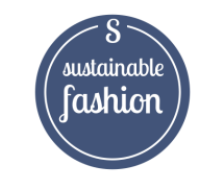At its heart, sustainable fashion represents a movement towards eco-friendly production methods, ethical labor practices, and a circular economy that minimizes waste. It’s about making conscious choices that benefit the planet and its inhabitants. This means choosing garments that last longer, are made from eco-friendly materials, and are produced by companies that pay fair wages and ensure safe working conditions for their workers.
Why Sustainable Fashion Matters
The fashion industry is one of the world’s largest polluters, with vast amounts of water usage, chemical runoff, and textile waste. Fast fashion, in particular, has exacerbated these issues, with quick turnaround times leading to overproduction and excessive waste. Sustainable fashion aims to counteract these practices by focusing on quality over quantity, renewable resources, and recycling or repurposing materials.
How We Can Make a Difference
Making a difference starts with awareness and action. Here are some ways you can contribute to a more sustainable fashion future:
- Educate Yourself and Others: Knowledge is power. The more you know about the impacts of fast fashion and the benefits of sustainable practices, the better equipped you’ll be to make informed choices.
- Support Ethical Brands: Look for brands that are transparent about their manufacturing processes, materials used, and labor practices. Supporting these brands sends a message that there is a demand for sustainable fashion.
- Embrace Minimalism: Consider adopting a minimalist approach to your wardrobe. Investing in versatile, high-quality pieces that last longer reduces the need for frequent purchases and helps minimize waste.
- Recycle and Repurpose: Before discarding unwanted clothing, think about how it can be reused, recycled, or donated. Many organizations and brands now offer recycling programs for textiles.
Highlighting Sustainable Brands
We’re committed to showcasing brands that are making a difference in the world of sustainable fashion. These brands are pioneers in using organic materials, implementing zero-waste production methods, and ensuring fair labor practices. By supporting these companies, you’re not just buying a product; you’re investing in a more sustainable and equitable future for fashion.
Conclusion
The journey towards sustainable fashion is ongoing, and each step we take makes a difference. By choosing to support ethical brands, adopting a more minimalist wardrobe, and educating ourselves and others about the importance of sustainability, we can create a ripple effect that leads to significant change. Join us in making sustainable fashion the norm, not the exception. Together, we can pave the way for a future where fashion not only looks good but does good too.

